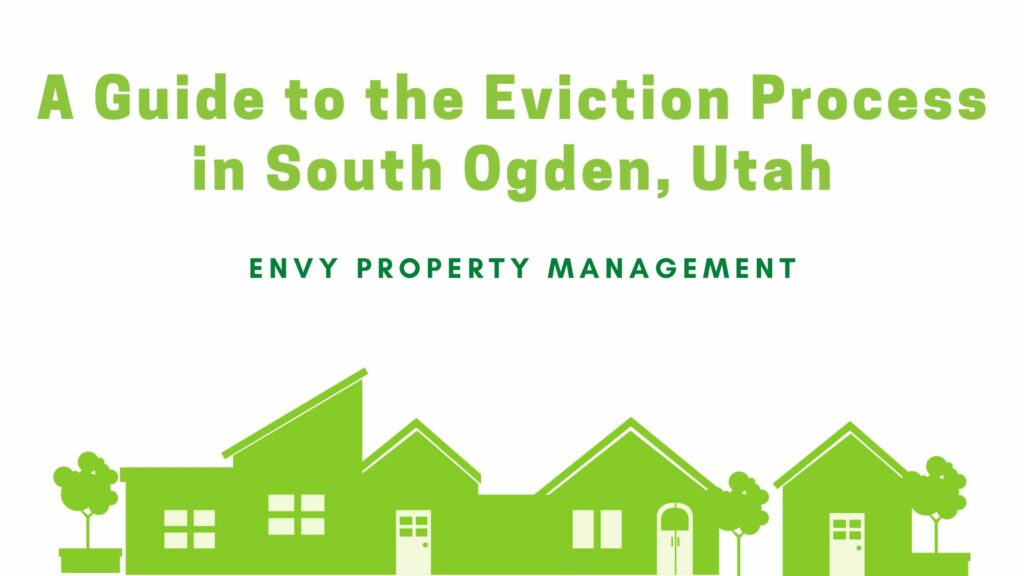While no landlord ever wants to have to evict a tenant, sometimes it is necessary. In the event that a landlord must evict a tenant, it is important to understand the Utah law on eviction and follow proper eviction procedures to avoid any potential legal trouble and to remain professional.
The Utah eviction process timeline typically takes one to four months. This time period will depend on the reason for the eviction, how the landlord decides to file the eviction action, and whether or not the tenant contests the eviction lawsuit.
If you want to learn more about the ins and outs of the legal eviction process in Utah, keep reading for our comprehensive guide on the legal process from the eviction lawsuit to the court.
Notice for Lease Termination
Can landlords evict a tenant for no reason? No, landlords in Utah must evict tenants for certain reasons, and each reason involves its own type of notice. The proper notice required also varies depending on the reason for the eviction. All of these are followed by a written notice to vacate. These include:
- Late on paying rent. Once the rent payment is past due, the landlord must serve the tenant with a 3-day notice to pay the rent. Failure to pay rent allows the landlord to proceed with the Utah process of eviction. If a tenant pays rent late, you can evict them with a notice. If they pay rent late, this does not absolve them from eviction if the rent is late.
- Lease violations. If a tenant fails to abide by the conditions of the lease agreement, then the landlord can serve them with a 3-day notice to comply. This gives the tenant 3 days to repair the issue that has caused the lease agreement violation or face eviction. This can include damage to the premises which you may be able to fix with money from the security deposit.

- End of the lease term. This kind of eviction applies if the tenant remains on the premises past their lease’s end date. If the rent is paid on a month-to-month basis, then the landlord must provide the renter with a 15-day notice to quit. If the tenancy is at will, the notice is 5 days.
- Subletting in violation of the lease. If the rental agreement does not allow a tenant to sublet the rental unit, and they do so anyways, this is a lease violation and the landlord may serve them with a 3-day written notice to correct the issue or face eviction.
- Committing waste. If a tenant commits waste on the property, a landlord must give them 3 days before continuing the process.
- Illegal business. Tenants who are involved in illegal activity will be given a 3-days-notice to vacate the premises before the landlord continues the process.
Serving the Notice of Complaint to the Tenant in Utah
When it comes to proceeding with an evictions case after the rental period ends, landlords have two options after the eviction notice to vacate is not obliged by.
Landlords can start by filing the complaint with the district court, then serve the summons and complaint to the tenant within 120 days. Or if they prefer, they can serve the tenant with the complaint first, as long as they file with the court within 10 days.
The Utah eviction notice, summons and complaint can be served by a sheriff, constable, U.S. Marshall, or anyone who is not involved with the case and is over 18 without a criminal record. The complaint can be served one of three ways:
- Providing a copy to the tenant in person
- Leaving a copy with someone who lives with the tenant and is of “suitable” age
- Mailing a copy to the tenant with a return receipt

The tenant then has 3 days to file an answer to the eviction complaint. This answer should include why the tenant feels that they should not be evicted from the premises. If they do not file an answer, then the landlord can proceed by filing an unlawful detainer lawsuit and the default judgment will be in favor of the landlord. If you move the tenant's personal property then they could make a case against you.
Occupancy Hearing
After the tenant has filed their answer to the complaint, either the landlord or the tenant can request an occupancy hearing. This case hearing will determine whether or not the tenant is allowed to remain on the property while waiting for the results of the eviction process but make sure not to move the tenant's property without their permission.
Attending the Hearing in Utah
If during the hearing, the judicial officer decides that an eviction hearing is necessary, then it will be held in court no more than 60 days after the complaint was originally filed with the court.
If the tenant does not show up to the court for the eviction hearing, then the judge will rule automatically in the favor of the landlord, and the tenant will be required to leave the premises. Attorney fees can be covered if the tenant is evicted and has to pay for income lost regarding the rental unit.
If the judge and court end up ruling in favor of the landlord at the eviction trial, then the tenant will be served with an court order of restitution and the eviction process will continue through Utah legal services.
Order of Restitution
The court order of restitution refers to the tenant’s last chance to leave the premises before being forcibly removed. Along with this, the tenant must be provided with the Request for Hearing Regarding Enforcement of an Order of Restitution form.

This form lets the tenant in question request a hearing if they believe that the order of restitution was wrongfully enforced. These must both be served by a sheriff, constable, or a private investigator. If the landlord has won the case, then the order of restitution will be served immediately after the hearing.
The Possession of the Rental Property is Returned to the Landlord
After the tenant has received the order of restitution, they will have a total of 3 days to leave the property and collect their belongings before the property owner can call the police.
If tenants fail to move out within this time period, then law officials will return to the property to forcibly remove the tenant. However, for evictions that are in response to a tenant’s illegal activity or a criminal act, the tenant must move out immediately.
If a tenant vacates the property and leaves behind any personal belongings, tenants must be given the chance to retrieve the following items: clothing, financial documents, identification, medical documents, prescription medication, or medical equipment. These items must be picked up by the tenant within 5 days.
Bottom Line
If you own a rental property in Utah, you should be aware of the specific eviction laws within the state. It can be confusing to stay up to date with Utah law, but Envy Property Management can help. Contact us today to figure out how we can help your rental unit be as successful as possible.
Disclaimer: This blog post should not be used as a substitute for legal advice from a licensed attorney in Utah. Laws frequently change, and this article may not be completely updated at the time that you read it. If you have any questions regarding Utah law regarding evictions or any other aspect of your property management needs, contact us today.


